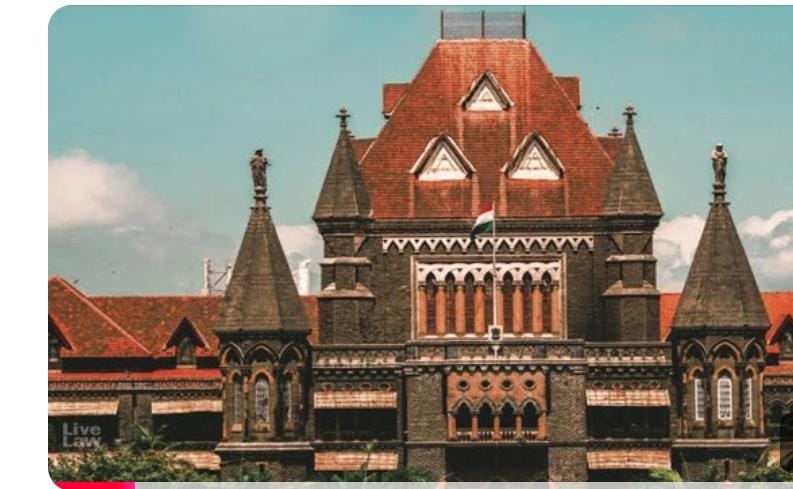
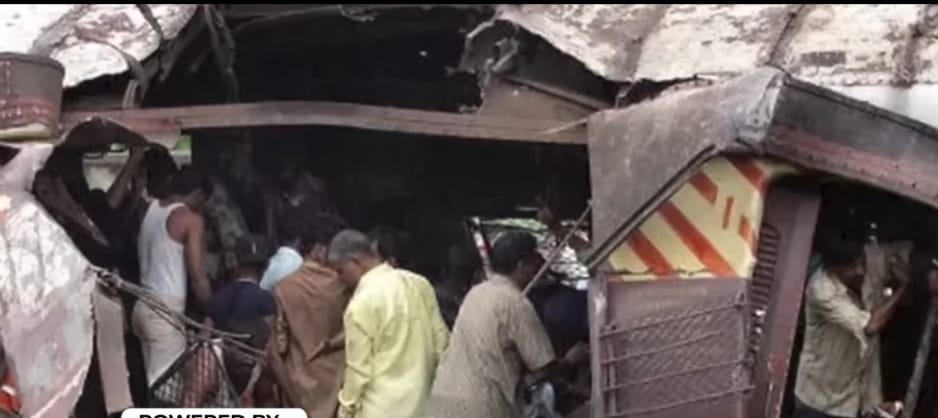
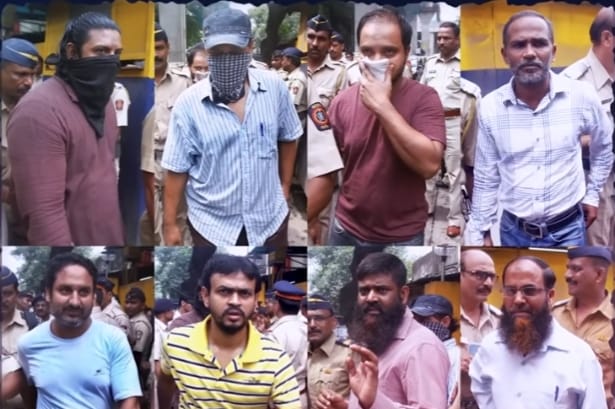
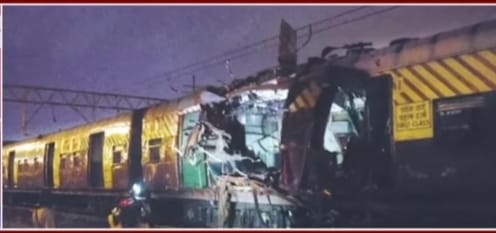
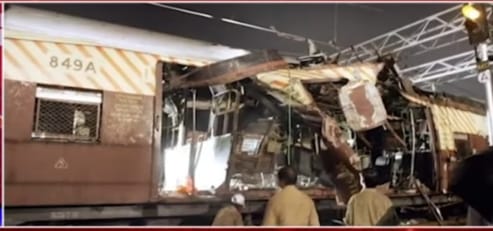
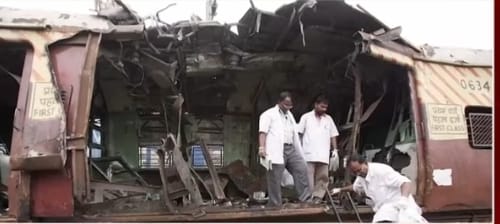
pic credit : social media YT
Bombay High Court’s Acquittal in 2006 Mumbai Train Blasts: A Verdict That Questions Justice Itself
On July 21, 2025, the Bombay High Court delivered a seismic ruling, acquitting all 12 men convicted in the 2006 Mumbai local train serial blasts case, overturning the 2015 Special MCOCA Court verdict that had sentenced five to death and seven to life imprisonment. The decision, nearly two decades after the attacks that killed 187 and injured over 800, exposes deep flaws in India’s investigative and judicial processes. As the court declared the prosecution’s case a “misleading sense of resolution” with the “true threat” still at large, the verdict raises profound questions: Who bears responsibility for the tragedy? And how can justice be served for both the victims and the wrongfully accused?
The 2006 Mumbai Blasts: A City Scarred
On July 11, 2006, seven bomb explosions tore through the first-class compartments of Mumbai’s local trains between 6:23 pm and 6:29 pm, claiming 187 lives and injuring over 800. The coordinated attack on the city’s lifeline shocked the nation, prompting a massive investigation by the Anti-Terrorism Squad (ATS). In 2015, the Special MCOCA Court convicted 12 men, relying heavily on confessions and circumstantial evidence. However, the Bombay High Court’s recent acquittal, as articulated by Justices Anil Kilor and Shyam Chandak, dismantles this narrative, citing “no substance” in the prosecution’s evidence and granting the accused the benefit of doubt.
A Flawed Prosecution: The Court’s Findings
The High Court’s judgment meticulously outlined five critical reasons for overturning the convictions, painting a picture of systemic failure.
1. Unreliable Eyewitness Testimonies
The court found eyewitness testimonies, recorded over 100 days after the blasts, and test identification parades (TIPs), conducted nearly four months later, inherently unreliable. For instance, taxi drivers who claimed to have dropped the accused at Churchgate Station could not credibly recall faces after such a delay. One witness who allegedly saw bombs being assembled faltered under cross-examination, while another was dismissed as a “stock witness” for appearing in multiple unrelated cases, undermining their credibility.
2. Missing Key Witnesses
The prosecution’s failure to examine crucial witnesses, including an injured commuter who assisted in sketching suspects days after the blasts, was a glaring omission. Five other injured passengers and a shopkeeper who allegedly sold pressure cookers to the accused were also not called. The court drew an adverse inference, noting that these absences weakened the case significantly.
3. Invalid TIPs
The TIPs, conducted on November 7, 2006, by Special Executive Officer Barve, were ruled inadmissible because Barve’s appointment had lapsed at the time. This procedural irregularity rendered the identification process legally void, further eroding the prosecution’s foundation.
4. Torture-Tainted Confessions
The confessional statements of 11 accused, central to the prosecution’s case, were discredited due to evidence of custodial torture. Medical reports from KEM and Bhabha hospitals confirmed physical abuse, including beatings, starvation, sleep deprivation, and chemical injections. The court noted that confessions used identical wording and listed co-accused in the same sequence, suggesting fabrication. One officer’s alleged remark to accused Kamal Ansari—“I am the cat, and you are the pole. I am scratching you”—highlighted the “barbaric and inhuman” treatment, rendering the confessions inadmissible.
5. Mishandled Forensic Evidence
The handling of explosive materials—RDX, detonators, pressure cookers, and circuit boards—was flawed, with the prosecution failing to prove proper sealing and custody before forensic testing. The court ruled these items could not be linked to the accused or the blasts, deeming them immaterial, especially since the nature of the bombs used remained unestablished.
Systemic Failures Under Scrutiny
The acquittal lays bare systemic issues in India’s criminal justice system. The ATS’s reliance on coerced confessions reflects a troubling disregard for ethical investigation practices. The failure to secure forensic evidence and examine key witnesses points to a lack of rigor. As the court noted, the prosecution’s case created a “false appearance of having solved a case,” undermining public trust while leaving the true perpetrators at large. The 19-year delay in delivering this verdict—described in one write-up as “too little, too late”—epitomizes the adage “justice delayed is justice denied.”
The Human Cost: Victims and the Accused
The verdict raises two critical questions: Who will deliver justice to the victims of the 2006 blasts, and who will compensate the 12 men wrongfully imprisoned for nearly two decades? The families of the 187 deceased and over 800 injured lack closure, with the court’s ruling suggesting the real culprits remain free. For the acquitted, the toll is immense. Senior Advocate S. Muralidhar, a former judge representing Muzzammil Shaikh and Zameer Shaikh, argued they were “innocent” and had languished in jail for 18 years without sufficient evidence. The physical and psychological scars of torture, coupled with the stigma of being labeled terrorists, cannot be undone. While India’s legal system allows for compensation in cases of wrongful conviction, the process is often slow and inadequate, leaving the acquitted to rebuild shattered lives.
A Call for Accountability and Reform
The verdict demands urgent reforms. Investigative agencies must adopt scientific, transparent methods, moving away from torture-based confessions. The judiciary must expedite trials in high-profile cases to prevent prolonged suffering. Compensation mechanisms for wrongful imprisonment need streamlining to ensure timely and adequate redress. The role of defense advocates, including Muralidhar, Nitya Ramakrishnan, and others, was pivotal in exposing these flaws, underscoring the importance of robust legal representation.
Rebuilding Trust in Justice
The Bombay High Court’s acquittal is both a correction of a grave injustice and a stark indictment of India’s criminal justice system. It frees 12 men but leaves the wounds of the 2006 blasts unhealed—for the victims’ families and the wrongfully accused. The verdict challenges the nation to confront uncomfortable truths about investigative failures and judicial delays. To restore public trust, India must ensure that justice is swift, ethical, and equitable. Only then can it honor the memory of the 187 lives lost and prevent further erosion of faith in the rule of law.
Hasnain Naqvi is a former member of the history faculty at St. Xavier’s College, Mumbai





